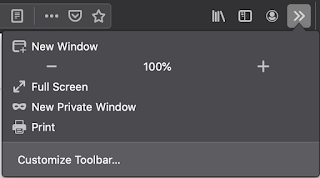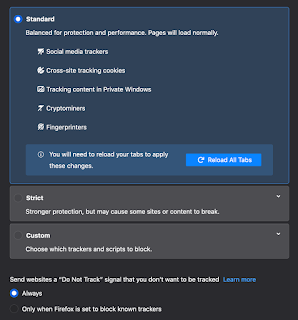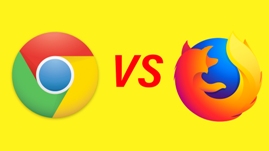Which is a better browser Firefox or Chrome? |
In this article, I will tell you about Which is a better browser Firefox or Chrome. Web browsers are our portals to the internet, however often people stick with the one they're familiar with. They rarely, if ever, experiment with different options that might make their lives easier. You may believe that Google Chrome is the only browser you'll ever need, but Firefox may disagree. If you want 11 Hidden Google Chrome features for power users so please .
In one corner, we have Chrome, the world's most famous browser, which has been owned by one of the world's largest tech companies since its inception in 2008. Firefox, an open-source browser created by the non-profit Mozilla in 2002, is in the opposite corner. One browser took less than a decade to conquer the world, while the other has been your geekiest pal's favorite for nearly two decades.Despite a chasm in overall popularity comparable to the Grand Canyon, Chrome vs. Firefox is a more convincing fight than you would expect. They're both excellent browsers, but according to a few key metrics, one of them comes out on top by a hair.
Usability and Performance
Chrome was able to overtake default browsers like Internet Explorer and Safari in only a few years, thanks to its clean interface, ease of use, and overall speed. It has all of the standard features that we foresee from browsers in 2021. from a simple bookmarks toolbar to the ability to open and even group many more tabs than you'll ever need before deleting them and starting over.
One of the most common criticisms of Chrome is that it consumes a lot of resources. Chrome, in particular, will consume a lot of RAM (or memory), slowing down your computer if you have too many tabs open. In this regard, Firefox is commonly considered to be more "lightweight," though testing does not always support this claim. For example, during stress testing earlier this year, Tom's Guide discovered that Firefox used slightly more memory than Chrome.
Though output varies from device to device and situation to situation, Firefox remains the faster browser in my experience over the years. Simple tasks like opening webpages, scrolling up and down, and opening several new tabs at once can be completed quickly (if at all). Chrome, on the other hand, isn't always reliable, and it can sometimes make your machine feel like it's stuck in molasses.
Firefox has many of the same basic features as Chrome, but it is more customizable, making it the clear winner in this category. The "overflow menu," which can hold as few or as many extraneous buttons (like print or fullscreen) as you want without cluttering up the basic toolbars, is one of my favorite UI features. If you're one of the approximately 27 people who likes the Touch Bar on a MacBook Pro, you can also customize which buttons appear on it.
Firefox is the winner.
Safety is paramount.
I used to be a weird kid who was way more concerned with web browsers than a young teen should be. The never-ending fight was persuading Internet Explorer users to turn to Firefox because, at the time, I was infamous for being as virus-proof as a submarine's screen door. While a lot has changed since then, Firefox's positive security image has remained unchanged.
Enhanced Tracking Protection is a security feature in modern Firefox that is supported by default when you install the browser. This prevents social media trackers from following you from website to website in order to serve you targeted advertisements on your favorite social networks. By clicking a shield icon next to the URL, Firefox makes it very easy to see which trackers and cookies are present on any website.
Chrome, on the other hand, lets you send a "Do Not Monitor" signal when browsing and, like Firefox, provides some simple ways to search for trackers and cookies. It's constantly updated, and it's almost definitely more secure than Internet Explorer was when it was the market leader.
Chrome, on the other hand, is a Google product. Every fiscal year, Google's parent company, Alphabet, earns tens of billions of dollars in online ad sales. Simply put, Google makes money by monitoring online activities, which makes Chrome inherently less trustworthy than a non-profit-run browser. Also, since Firefox is open source, it's difficult for developers to conceal bad code without anyone finding it eventually. Even if neither is bad, it's obvious which is the better bet in terms of privacy and protection.
Firefox is the winner.
Optional Extras
Chrome takes the cake in terms of extra features since it was designed to take full advantage of Google's large ecosystem of services. Simply log in with your Gmail account, and you'll have instant access to Photos, Drive, Sheets, Meet, and everything else Google has to offer.
Even though I prefer Firefox in several ways, I must use all of those Google services for work. As a result, Chrome makes more sense as my primary browser, and it can do so for you as well.
Aside from that, Chrome's marketplace for browser extensions is, well, comprehensive. There's an extension for almost anything, whether you want to boost your child's productivity or just watch Netflix with friends. Firefox is no slouch in this department, either, with its own extensive extension marketplace. It's just not as detailed as it should be.
Chrome's biggest benefit here is that Google has wormed its way into every part of our lives, so it almost seems like cheating. Naturally, a browser that integrates all of these resources would be beneficial. Although you can sync your browsing history and bookmarks from Chrome to Firefox, you can't sync your passwords. Since you have to create a Firefox account and sync it through different devices before you can do so, it's not as simple as Chrome's setup.
Chrome is the winner.
The Last Word
Firefox won two of the three most important categories (at least to me), making it difficult to label it anything other than a winner in this race. Nonetheless, as I previously said, I do not use Chrome on a regular basis because Chrome's benefits are extremely convenient.
However, if I weren't bound by Google's ecosystem, I'd jump on board with Firefox in a heartbeat. It's simply simpler and faster because it's not weighed down by the desire to be all things to all people. It's also not owned by a sinister megacorporation, which is always a plus. At the end of the day, Chrome would do for the vast majority of users.
If you decide to stick with it, I completely understand. Every now and then, try something different.














0 Comments